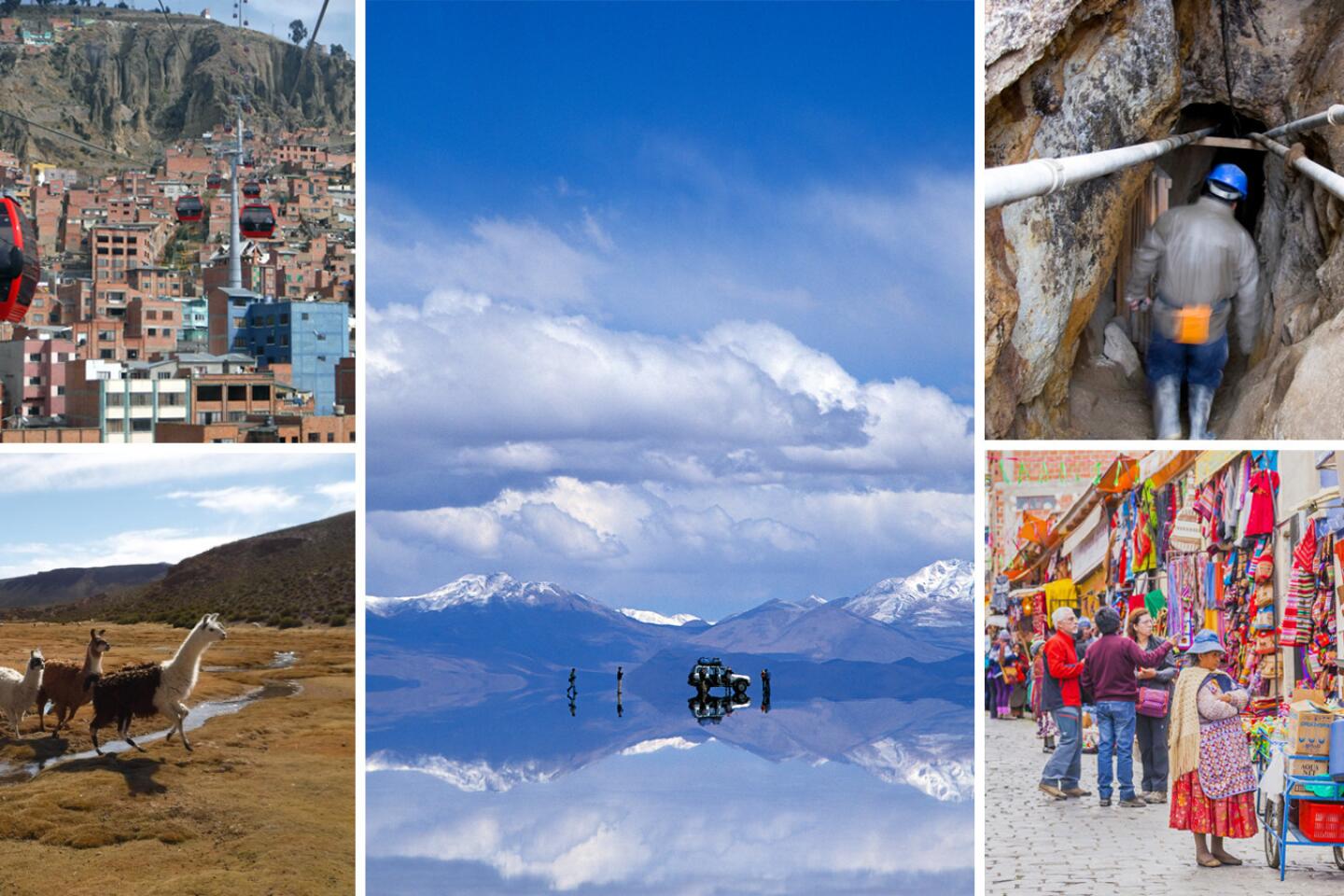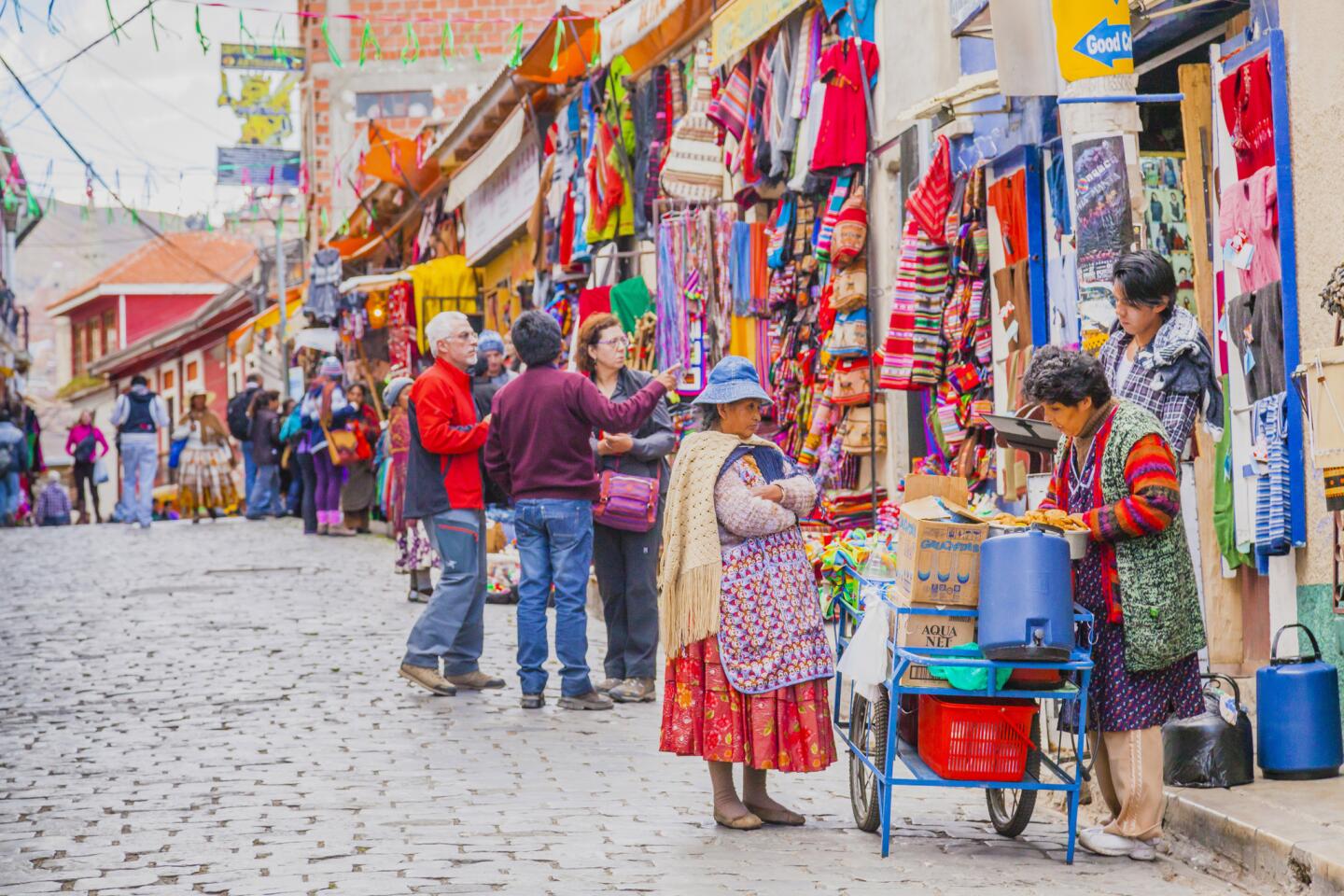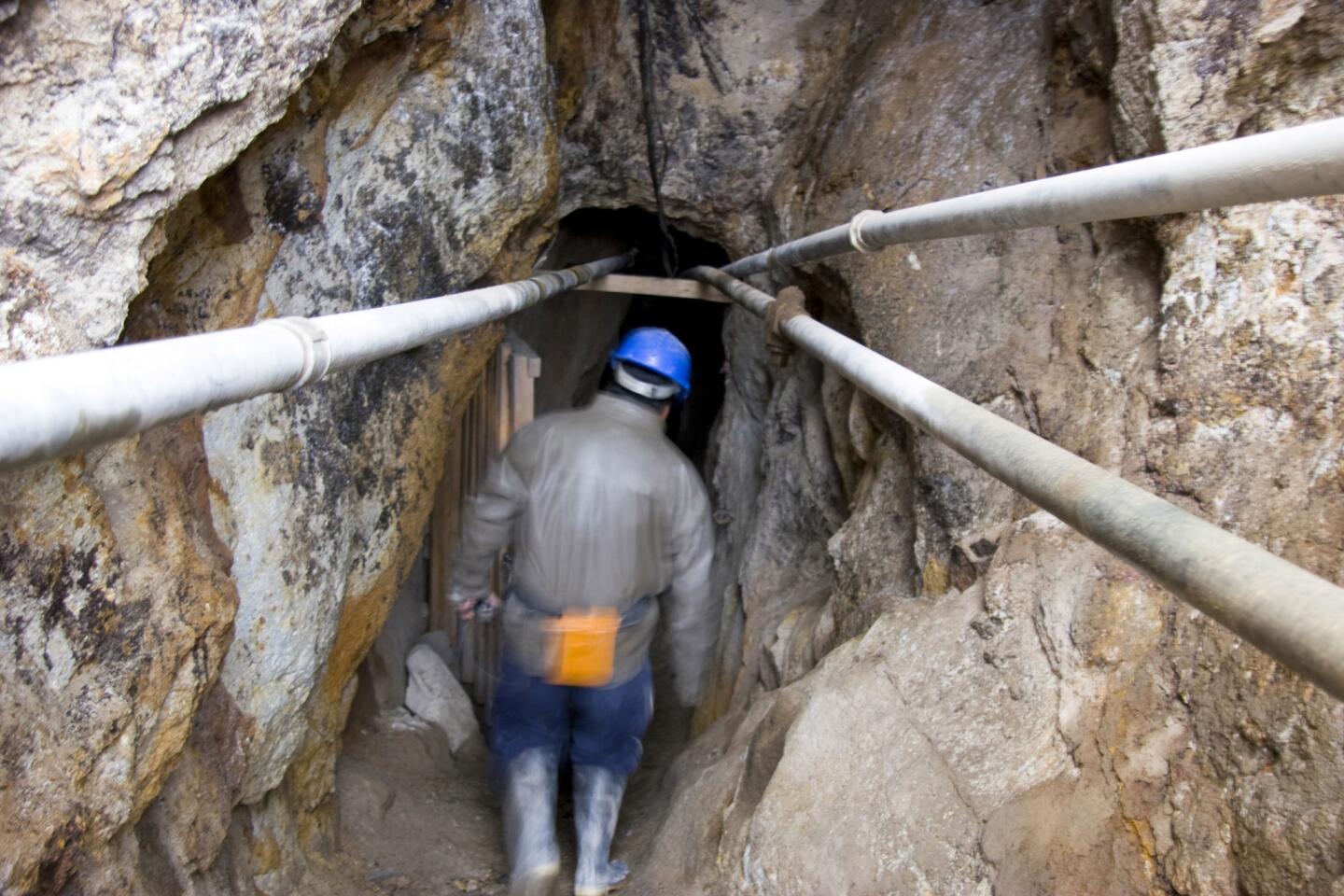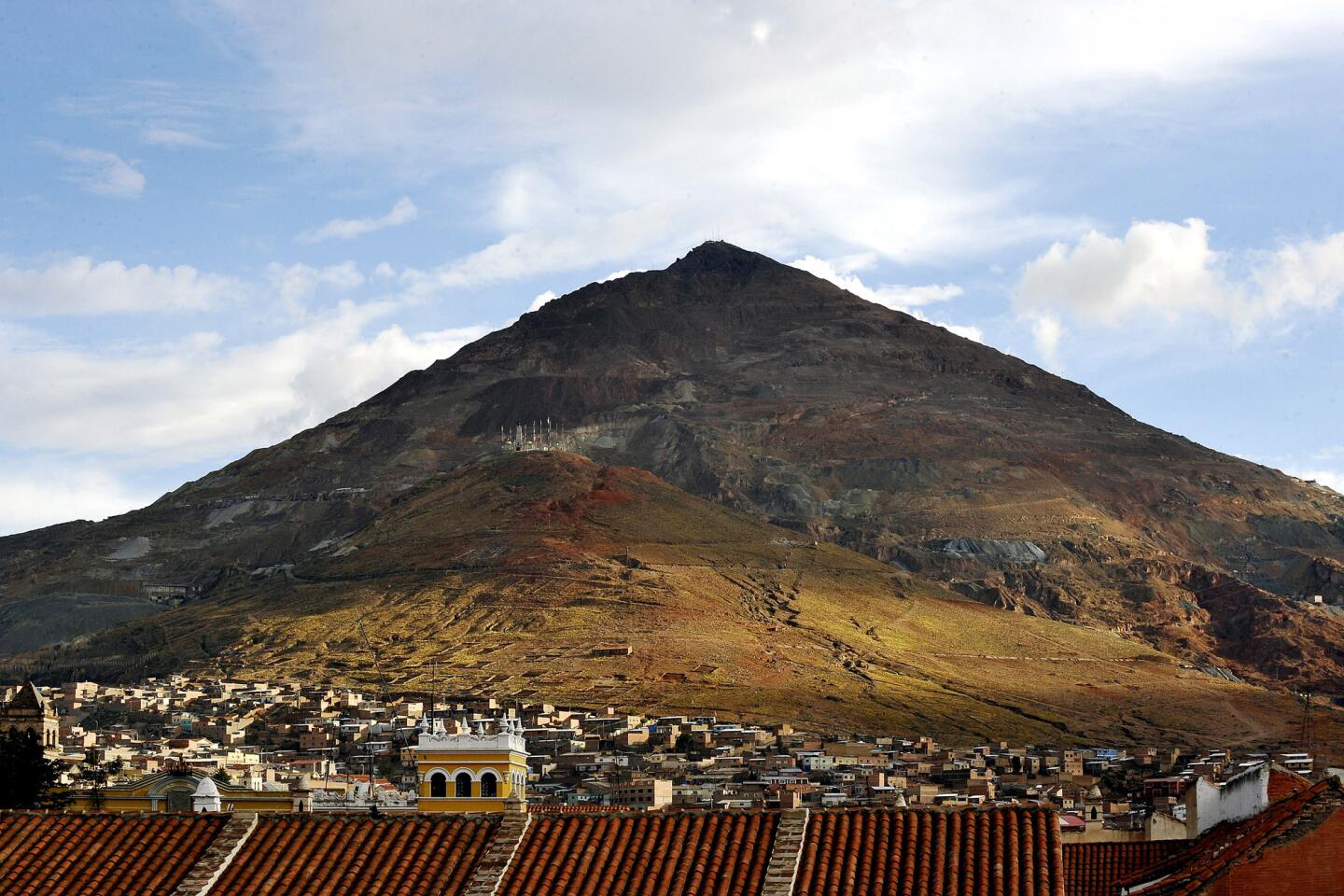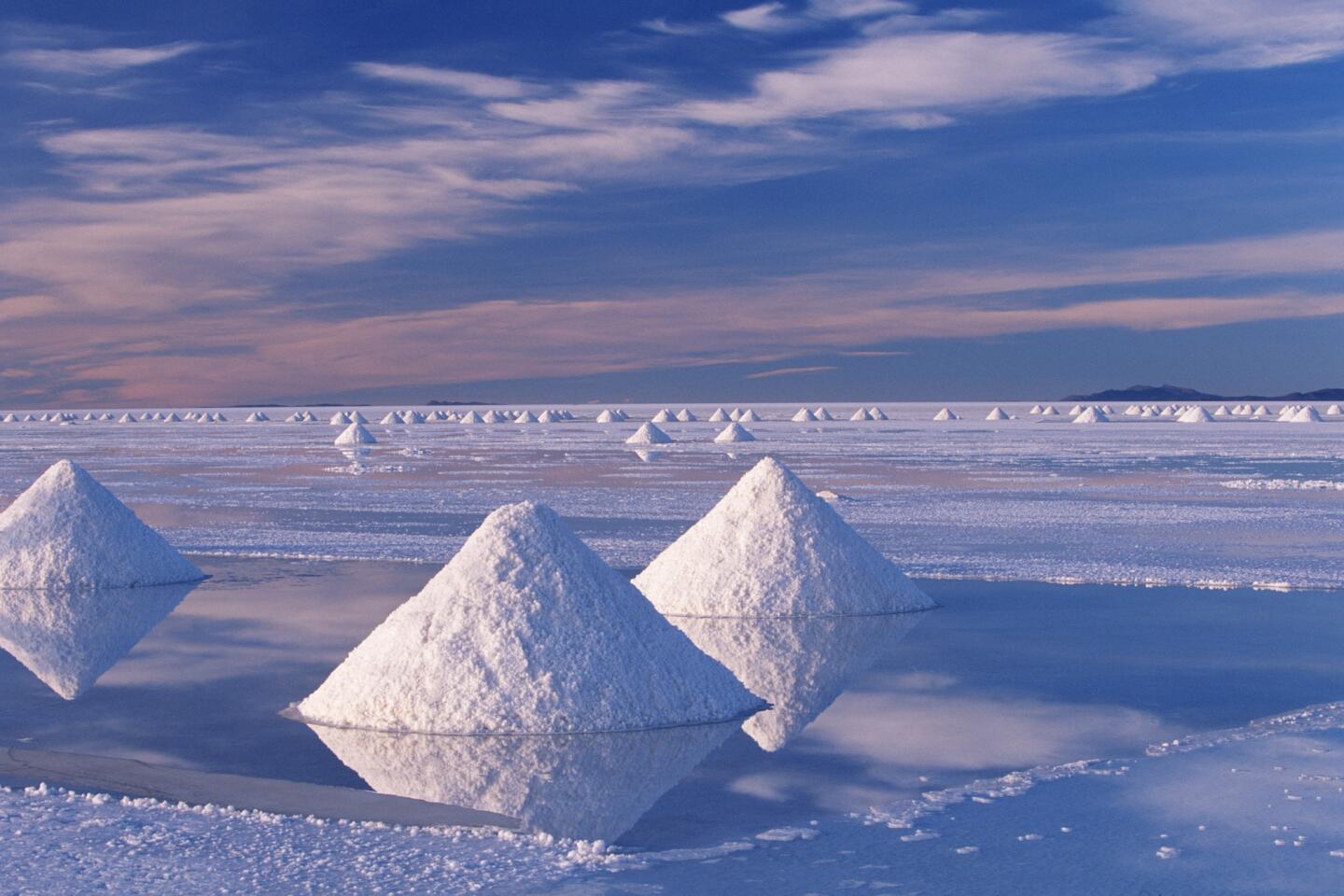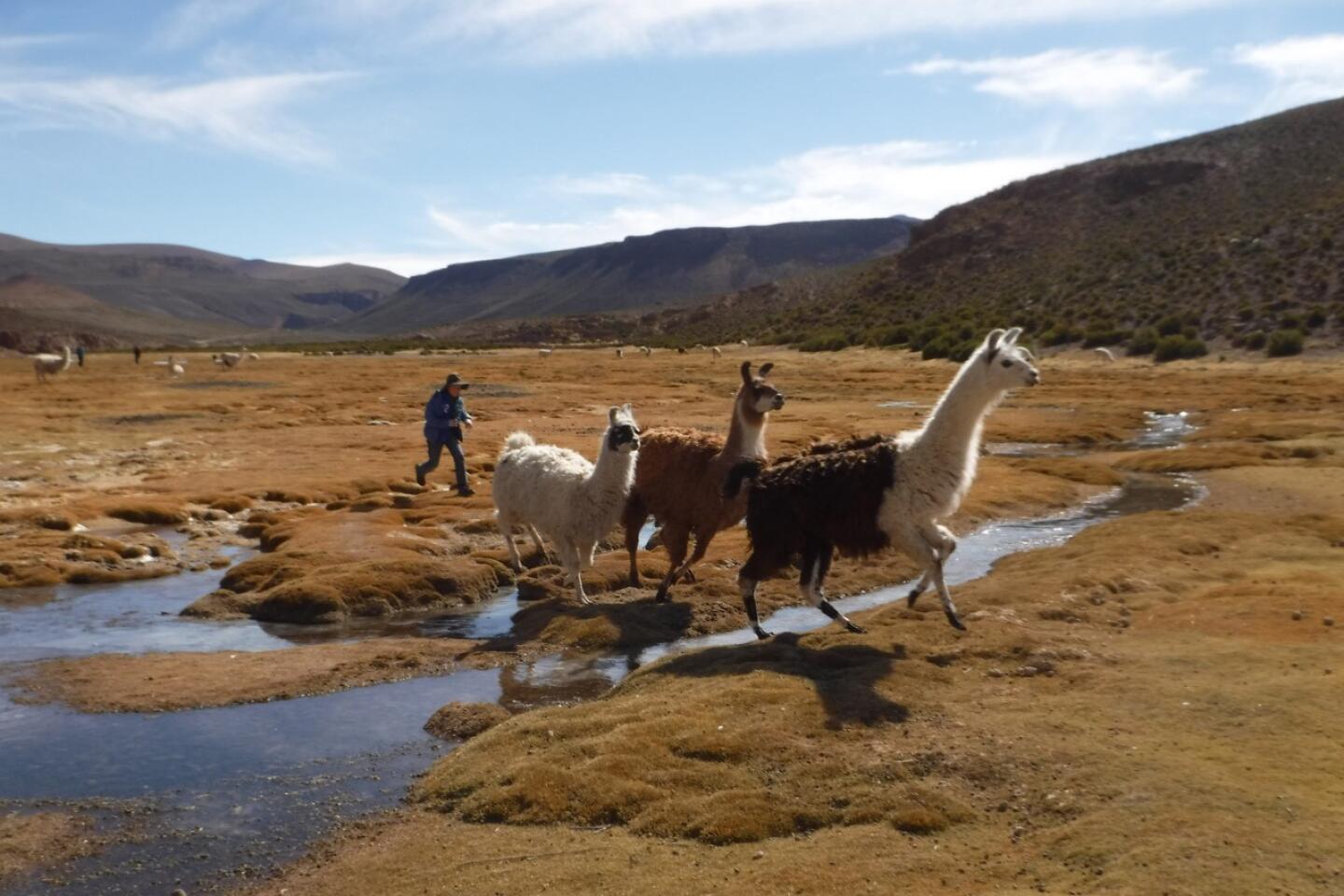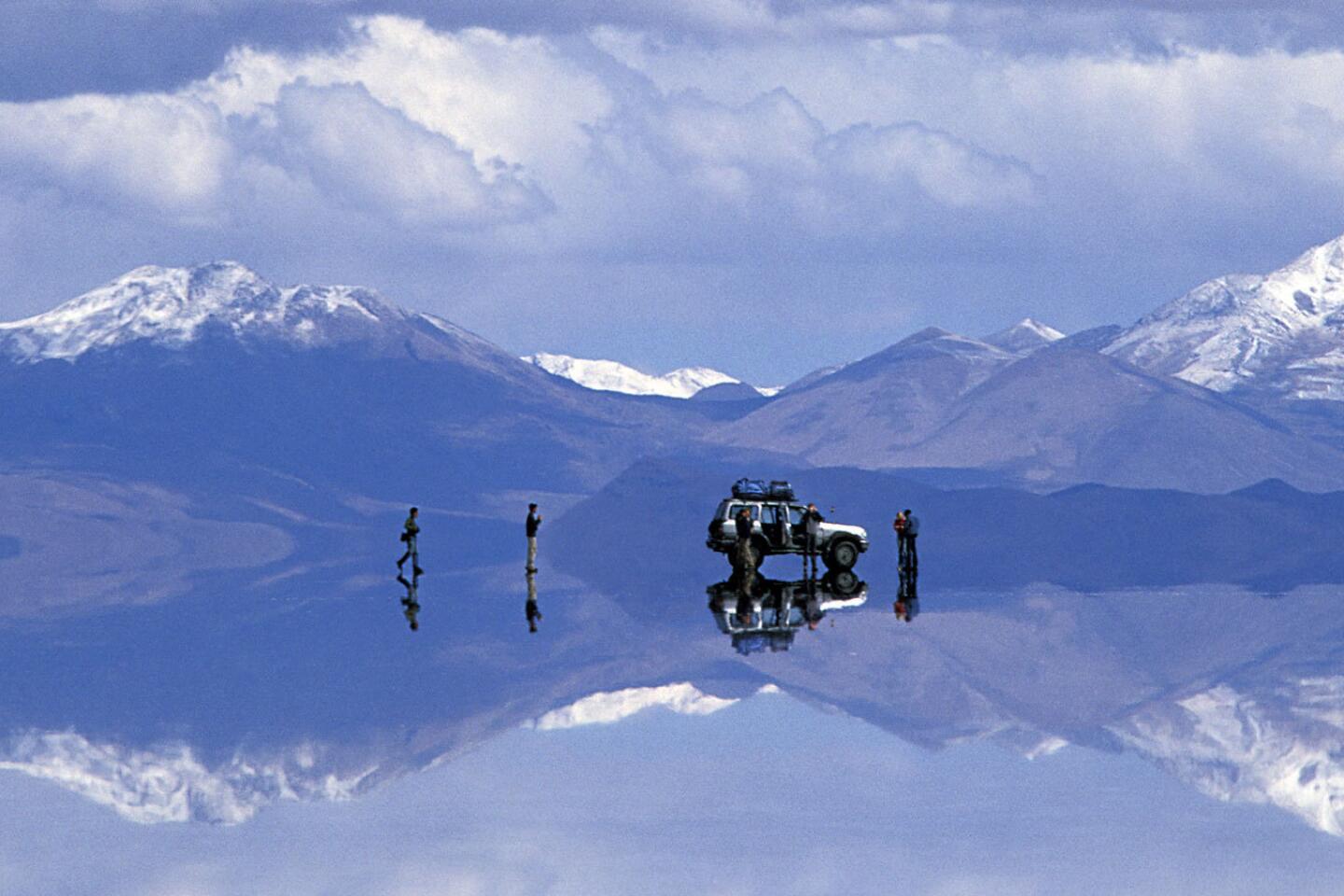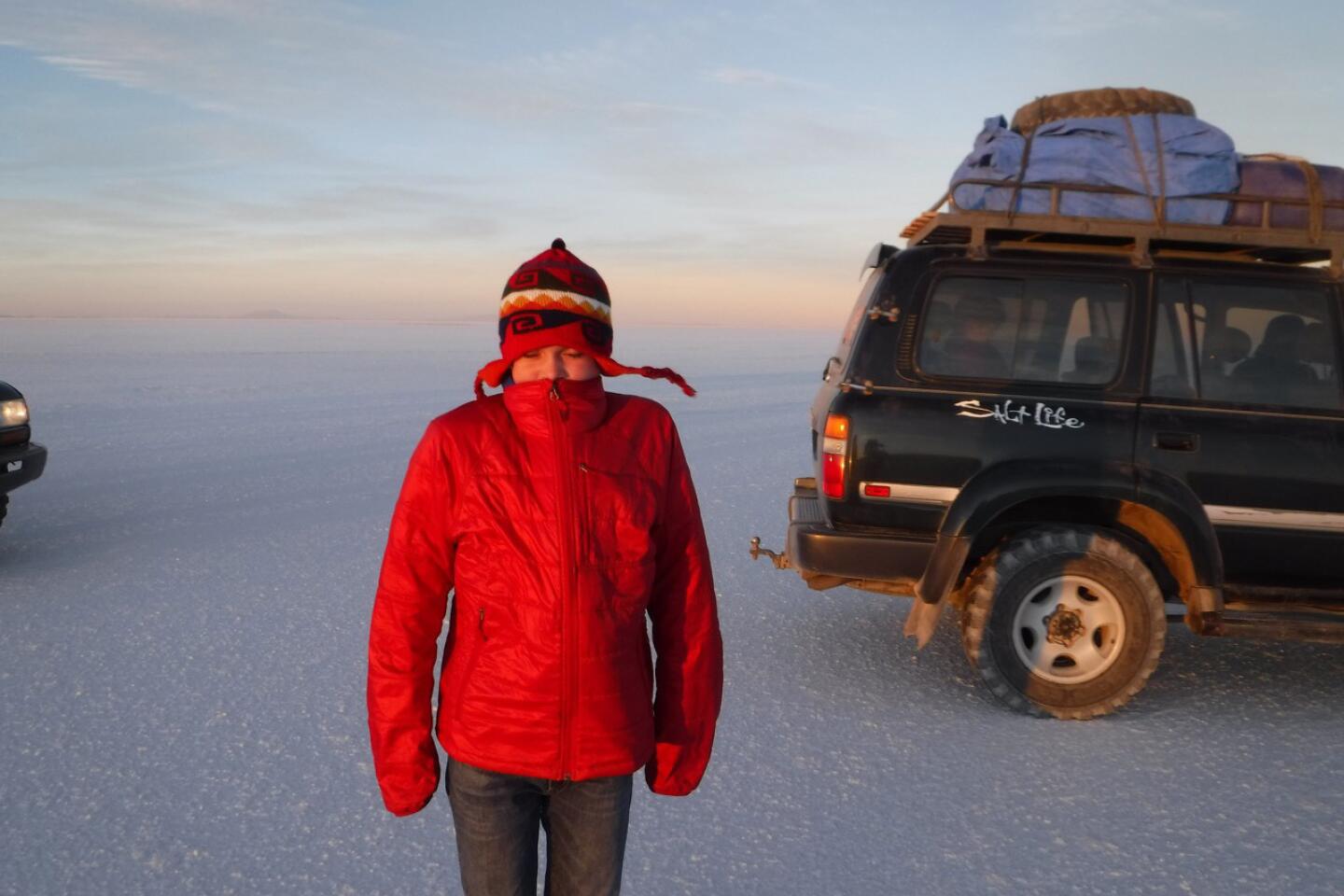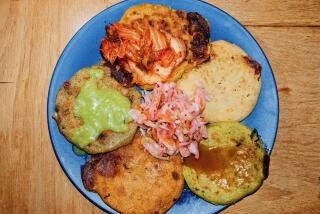Bolivia’s raw beauty calls to travelers looking for adventure
LA PAZ, Bolivia — Bolivia may be the hottest ticket in South America.
Yes. Bolivia.
With President Evo Morales’ election to a third term in November 2014, Bolivia has enjoyed nine years of political stability — one of the longest stretches in its history since its independence from Spain in 1825. That has led to unprecedented financial growth; Bolivia’s economy grew by 6.5% in 2013, making it the fastest-growing in all of South America.
If you want high-end luxury travel, this is not the country for you. But if you are looking for raw, untamed beauty and rugged adventure, Bolivia is calling your name. My husband, my sons Theo, 12, and Benji, 10, and I visited Bolivia this summer (winter in Bolivia) as part of a two-month South American odyssey. We went in search of adventure and to see the source of the silver that had fueled the Spanish empire.
Every traveler we met had a Bolivian tale to tell: bad food; crime in La Paz, the seat of government; debilitating altitude.
On that last matter, the Altiplano plateau, which makes up about a third of this landlocked country, is so high that it would give any Angeleno a splitting headache. We were below 11,000 feet only one day in two weeks.
Bolivia also has the largest indigenous population of any country in South America (60%), and its poverty rate, although shrinking, remains at about 40%.
Western countries blast Morales for being a socialist, but his nationalization of certain industries and investments in roads and a stunning new public transportation system in La Paz, as well as in airports and telecommunications, make travel safer, easier and more accessible for visitors. Many of the changes are so new that they were not reflected in our 2015 Bolivia guidebooks.
La Paz’s Mi Teleférico — as the system of airborne cable cars or gondolas is called — opened three lines in 2014 (red, yellow and green, for the Bolivian flag), and six more are planned. The city finished the first of three phases of airport modernization in July. The winding road between Sucre and Potosí was repaved in the last three years, making it faster and safer.
And the airport in Uyuni, formerly just a landing strip, now has a terminal, a runway and has multiple flights a day from La Paz, making a trip to the salt flats easier.
We crafted a loose two-week itinerary that included La Paz, the salt flats of Salar de Uyuni and Potosí, the legendary colonial city with the mountain of silver.
We had planned more, but Bolivia is still unpredictable despite the investment in its tourism infrastructure.
Despite our fears, we were able to do it all, plus spend five days at Lake Titicaca and Isla del Sol, and a night in Sucre, Bolivia’s capital known for its whitewashed colonial buildings.
What we saw left us craving to see more of Bolivia’s culture and dramatic, varied landscapes.
::
If you go
THE BEST WAY TO LA PAZ, BOLIVIA
From LAX, American, LAN and Copa offer connecting service (change of planes) to La Paz. Restricted round-trip fares from $799, including taxes and fees. Amazonas and BOA offer nonstop service from La Paz to Uyuni and Sucre; restricted round-trip fares from $156 and $70, respectively, including taxes and fees.
TELEPHONES
To call the numbers below from the U.S., dial 011 (the international dialing code), 591 (the country code for Bolivia) and the local number (seven digits for land line, eight digits for cellphone. It is often easiest to book online — even within the country. We carried a computer with us and booked ahead for each leg.
GETTING AROUND
There is bus service to most major cities, trains run to some and the number of flights between cities has increased. For well-traveled legs of the trip, say from Potosí to Sucre, you can hire a taxi for an affordable price.
WHERE TO STAY
Hotel Rosario La Paz, 704 Avenida lllampu, La Paz; 2-245-1658, www.hotelrosario.com. In the heart of everything in downtown La Paz, just five minutes from museums. Luxurious hotel with touches of Quechua and Aymara decor. Excellent buffet and a very helpful staff. Doubles begin at $79, breakfast included.
Las Olas, 1-3 Michel Perez, Copacabana; 7-250-8668, www.hostallasolas.com. Magical hotel on the hills above Lake Titicaca: Every room and suite is unique, with views of the sacred lake and llamas grazing outside your window. Fantastic food next door at Hotel La Cupula. Doubles from $45.
Hostal Carlos V Imperial, 42 Linares, Potosí: 2-623-1010. Ideal location in colonial part of the city a block from the main square and the Casa Nacional de la Moneda. The rooms are very small, but the suite is fantastic. Doubles from $25, small breakfast included.
WHERE TO EAT
The food in La Paz is not very memorable. We stuck mostly to pastries, pizza and saltenas, the ubiquitous breakfast empanadas. Ever-present tourist fare such as pizza is probably your safest bet. For that, try Martiani Pizza, 738 Illampu. Good toppings, good crust, good food. Clean and friendly.
La Cupula Restaurant, 1-3 Michel Perez, Copacabana; www.hotelcupula.com. The cheese and chocolate fondues are to die for, and the rainbow trout will leave you panting for more. Lake views, a cozy fire and nightly Andean flute performances by local teens make for a memorable experience. Mains, $4-$7.
El Tenedor de Plata, Plaza 10 Noviembre, No 1 Calle Tarija, Potosí. This quaint former French restaurant on the town square offers European staples and Bolivian specialties such as pique macho, a heaping plate of bite-size pieces of meat, potatoes, hard-boiled eggs and more. Good wine, good service, delightful atmosphere. Mains, $6-$10.
TO LEARN MORE
Ministry of Tourism, www.bolivia.travel
MORE:
Mining the history of a Bolivian silver town well worth the trip
Bolivia’s ethereal Salar de Uyuni salt flats will shake your worldview
La Paz’s cable-car system Teleferico a heady ride that bridges Bolivia’s values
More to Read
Sign up for The Wild
We’ll help you find the best places to hike, bike and run, as well as the perfect silent spots for meditation and yoga.
You may occasionally receive promotional content from the Los Angeles Times.
